Got stomach pain? Here are 12 potential reasons why
Learn what could be causing your stomach distress, plus how to treat it.
Updated on July 25, 2024
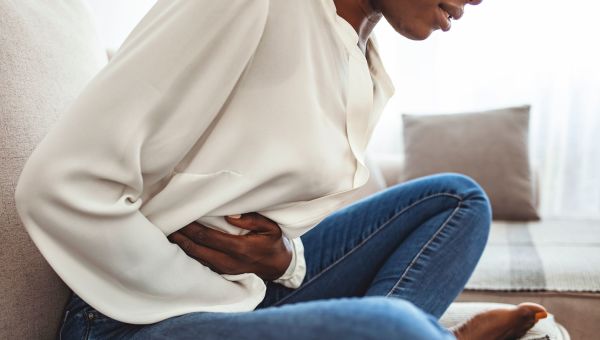
Everyone experiences abdominal pain at some point. Whether it’s heartburn, gallstones, cramps, kidney stones, hernia—or something more serious, such as cancer—there are many possible causes.
Here’s a look at some of the more common sources of stomach pain, plus how to read your symptoms and what treatment you may need.

Heartburn and GERD
Heartburn causes a burning and sometimes painful sensation in the upper abdomen, chest, and throat. It occurs when stomach acid and food come back up the esophagus, the tube that connects your stomach to your throat.
Want to take control of your heartburn? Start by watching your diet. What you eat (and drink) influences your risk. Other ways to ward off heartburn include losing weight, quitting smoking, limiting alcohol, not eating too close to bedtime, sleeping with your chest and head elevated in bed, and taking certain medications.
If you have heartburn at least twice a week, you could be experiencing a more serious condition called gastroesophageal reflux disease (GERD). This is an ongoing irritation in the esophagus that can lead to spasms, bleeding, trouble swallowing, breathing problems, and even precancerous changes to cells in the esophagus.
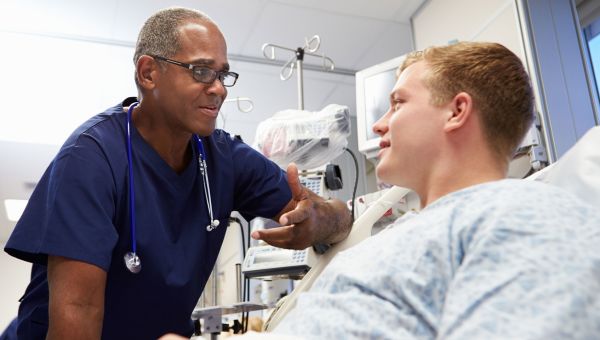
Gallstones
Your gallbladder stores bile, which helps you digest your food. If something is blocking the flow of bile, it’s usually a gallstone. Gallstones that aren’t causing symptoms do not require treatment. But those that create blockages could lead to infection and may lead to unpleasant symptoms such as vomiting, nausea, and pain in the abdomen, back, or under the right arm. This is called a gallstone attack or a gallbladder attack. Once you’ve had one, you’re more likely to have another.
While a low-fat diet can help alleviate the frequency of gallstone attacks, it cannot make the stones disappear. There aren’t many medications that can treat gallstones, so gallbladder removal surgery is usually the best option.
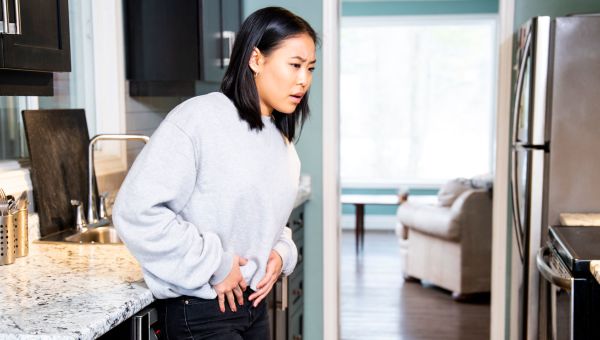
Appendicitis
Appendicitis is a condition marked by inflammation of the appendix, a small tube connected to the large intestine. If the inflammation goes untreated, the appendix may burst, which can trigger a serious infection in your abdomen.
The condition usually begins with a minor or sudden pain around the belly button that soon becomes sharper and more severe. About 12 to 24 hours later, the pain transitions to the lower right side of the abdomen, and may become worse when you cough or take deep breaths. In addition to pain, you may experience nausea, loss of appetite, vomiting, fever, and bowel problems (such as bloating, constipation, or diarrhea). Your abdomen may also be hard or tender to the touch.
If symptoms last longer than four hours, call your healthcare provider (HCP) for an urgent medical exam. Appendicitis is considered a medical emergency and usually requires surgery.

Stress
We’ve all been there: It’s time for a big meeting, and suddenly you need to sprint to the nearest restroom. That’s because stress can wreak havoc on your digestive system. When your brain faces a fight-or-flight situation, digestion slows down or stops completely, causing part of the gut to spasm. This can lead to symptoms such as nausea, loss of appetite, heartburn, cramping, diarrhea, and constipation. Need to relax and soothe your stomach? Find effective ways to address your stress in the moment.

Ulcers
Stomach ulcers are sores that occur in your lower esophagus, stomach, or the first part of your small intestine (called the duodenum). They can cause pain anywhere in your abdomen between the breastbone and belly button. Ulcers are typically caused by a bacterial infection, though using non-steroidal anti-inflammatory drugs (NSAIDs), smoking, and excessive drinking could increase your risk. Treatment usually involves medication. If the ulcer doesn’t go away, your HCP may recommend an endoscopy—the use of a long camera to explore your gastrointestinal tract—to investigate other reasons for your symptoms.

Pancreatitis
There are two types of pancreatitis: acute and chronic. Acute pancreatitis is often caused by gallstones or alcohol abuse, though it may also be triggered by elevated levels of triglycerides in the blood, trauma or injury to the abdomen, or complications from endoscopic procedures. It occurs suddenly and usually goes away in a few days with treatment.
Chronic pancreatitis can be caused by heavy alcohol use and some inherited disorders, such as cystic fibrosis. It may also manifest as an autoimmune disorder, in which the body's immune system attacks the pancreas. Common symptoms include vomiting, weight loss, oily stools, and nausea. In addition to medications, intravenous (IV) fluids, and tube feeding, treatment for chronic pancreatitis may require a hospital stay if it’s severe or if there are complications.

Food Poisoning
It’s midnight and you suddenly wake up with a jolt. Your stomach doesn’t feel quite right. Your mind immediately flashes back to the oysters you had for dinner.
That queasy feeling in your stomach? If it’s accompanied by vomiting, diarrhea, nausea, fever, and/or dehydration, it could be due to food poisoning, an extremely common form of stomach upset. There are an estimated 48 million cases of foodborne illness in the United States each year, resulting in 128,000 hospitalizations, and 3,000 deaths. Food poisoning is typically caused by bacteria and viruses, but may also be the result of parasites, molds, or allergens.
Typically, a bout of food poisoning lasts for 24 hours, but it can sometimes take a few days to recover completely. Just make sure you’re getting enough liquids to compensate for lost fluids.
Contact your HCP if:
- You vomit for more than 48 hours
- You have diarrhea that lasts for many days OR it's black, bloody, or looks like tar
- You run a fever of at least 101F
- You feel lightheaded or dizzy when you stand up, or confused at all
- The pain in your belly is severe
In severe cases, food poisoning may lead to kidney failure or brain damage, and may even be fatal. Go to the emergency room if you have severe symptoms for more than 24 hours or are at higher risk for medical issues. People with weakened immune systems, as well as those who are pregnant, 65 years of age or older, or younger than 5 are at particular risk.

Gynecological Problems
Endometriosis occurs when the tissue lining the uterus grows elsewhere, such as behind the uterus, or on the ovaries, bladder, or bowels. Women with this condition will often experience pain in the abdomen, lower back, and pelvic areas before or during their periods. Endometriosis may be treated with pain medications, hormone therapy, or surgery, depending on its severity and location.
Ovarian cysts vary in size, with smaller cysts rarely causing symptoms. Larger cysts could cause pain in the lower abdomen, along with pressure, bloating, and swelling. Severe, sudden pain may occur when a cyst ruptures. Treatment depends on the size and type of cyst, but HCPs may recommend pain medications or surgery.
Other potential causes of abdominal pain can include pelvic inflammatory disease (or PID, an infection of the reproductive organs), degenerating uterine fibroids (fibroids that grow very quickly and then die), or ectopic pregnancy (a pregnancy that occurs outside of the uterus), which is a potentially life-threatening condition.
If you have unexplained abdominal pain, be safe and call your HCP.
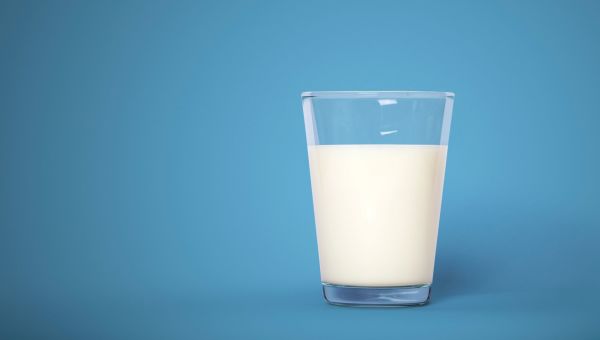
Lactose Intolerance
Did you know that one of the most common food groups in your refrigerator may be making you sick? If you’re lactose intolerant, dairy products like milk and cheese cause your stomach to turn. Symptoms include bloating, gas, diarrhea, cramps, and nausea after dairy consumption. If milk and other dairy products are to blame for your digestive problems, you should avoid them.
Luckily, there are plenty of alternatives for your favorite dairy foods, including plant-based milks and vegan products, which don’t use ingredients from animals.
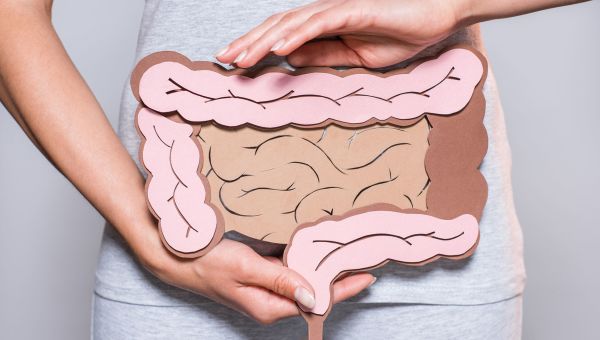
Inflammatory Bowel Disease
The two most common forms of inflammatory bowel disease (IBD) are Crohn’s disease and ulcerative colitis (UC). Crohn’s disease is chronic inflammation of any part of the digestive tract—including the mouth and anus. Symptoms include abdominal pain, diarrhea, weight loss, and fatigue.
Ulcerative colitis is chronic inflammation of the large intestine and sometimes the last part of your small intestine, called the ileum. Symptoms of UC include abdominal pain and cramping, particularly on the left side of the abdomen, as well as weight loss, fatigue, having the urgent need to have a bowel movement, diarrhea and/or frequent and small bowel movements, and blood in the stool.
Both Crohn’s and UC can be debilitating—and occasionally life threatening—so it’s important to talk to your HCP about treatment options. They may suggest diet and lifestyle changes, drug therapy or surgery.
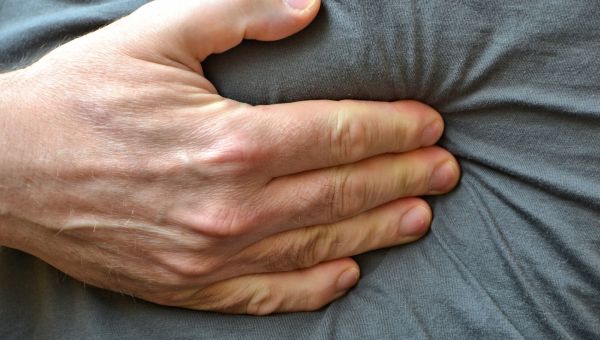
Irritable Bowel Syndrome
Irritable bowel syndrome (IBS) is not the same as inflammatory bowel disease. In IBS, the colon doesn’t function normally, but there is no permanent damage. It affects only the large intestine and causes cramping, bloating, and irregular bowel movements. Treatment for IBS includes diet changes, medicine, and sometimes probiotics or psychological therapies.

Parasites
Contrary to popular belief, parasites are actually quite common in the United States. Swimming in a lake, drinking unsafe water and eating raw or undercooked meat or seafood are just a few of the ways you might pick them up. Most of the time your body can take care of eliminating parasites by itself, but sometimes they can cause diseases that need medical attention.
Signs of parasites include cramps, diarrhea, unexplained weight loss, and chronic exhaustion. Your HCP can diagnose parasites through stool tests. While many parasitic infections can be prevented with good hygiene practices, they can all be treated with medication.

MedlinePlus. Heartburn. November 12, 2020.
MedlinePlus. Gallstones. February 4, 2021.
MedlinePlus. Appendicitis. February 26, 2021.
National Institute of Diabetes and Digestive and Kidney Diseases. Definition & Facts for Appendicitis. Last Reviewed July 2021.
Michael Bartel, MD, PhD. Merck Manual Consumer Version. Acute Pancreatitis. Content last modified Sep 2020.
Weiss FU, Laemmerhirt F, Lerch MM. Etiology and risk factors of acute and chronic pancreatitis. Visc Med. 2019;35(2):73-81.
Harvard Health Publishing. The gut-brain connection. January 21, 2020.
Centers for Disease Control and Prevention. Food Safety: Staphylococcal (Staph) Food Poisoning. August 9, 2018.
Mayo Clinic. First aid: Foodborne Illness. August 12, 2022.
FoodSafety.gov. Food Poisoning. Date Last Reviewed August 20, 2020.
Centers for Disease Control and Prevention. Reproductive Health: Common Reproductive Health Concerns for Women. April 27, 2018.
Office on Women’s Health. Ovarian cysts. April 1, 2019.
Mayo Clinic. Ovarian Cysts. August 26, 2020.
Brigham And Women's Hospital. Uterine Fibroids. Accessed September 27, 2021.
Cleveland Clinic. Ectopic Pregnancy. Last reviewed, February 6, 2020.
Centers for Disease Control and Prevention. Inflammatory Bowel Disease. December 29, 2019.
Mayo Clinic. Inflammatory bowel disease (IBD). November 7, 2020.
MedlinePlus. Irritable Bowel Syndrome. February 10, 2021.
Mayo Clinic. Heartburn. April 17, 2020.
Centers for Disease Control and Prevention. Transmission of Parasitic Diseases. February 17, 2021.
